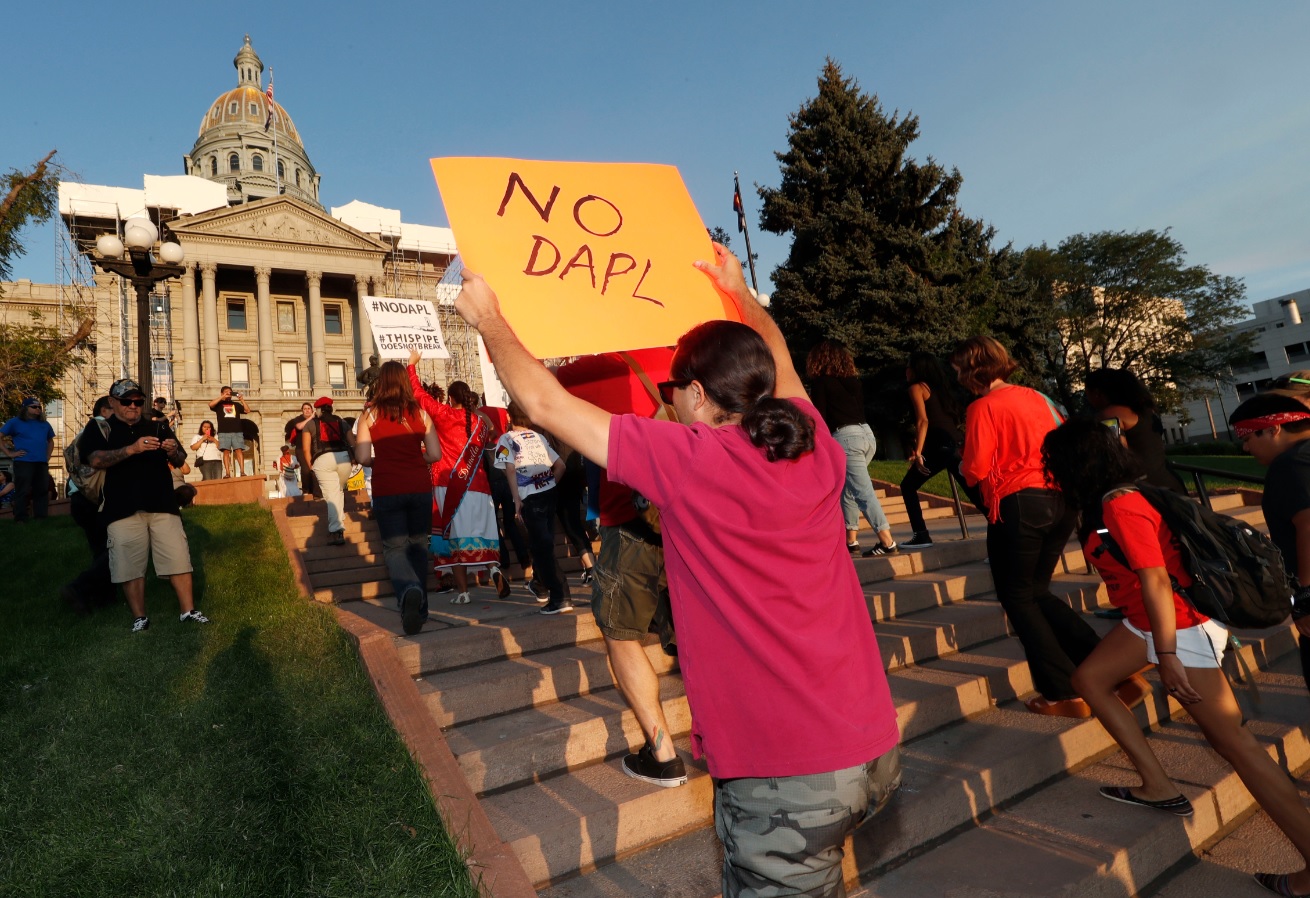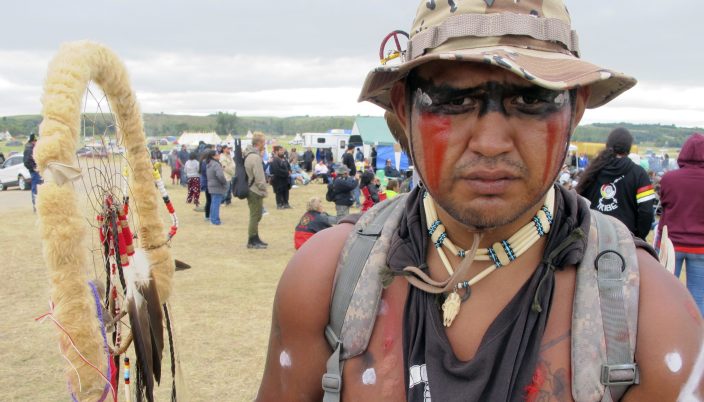Two weeks ago, the final permit was granted to tunnel under Lake Oahe, a reservoir on the Missouri River. But the fight is far from over.
The water protectors maintain that the pipeline would desecrate sacred sites and potentially pollute their water, and are gearing up for the legal battles that will ensue.
Speaking to NITV, Professor Whyte explained why one of the biggest reasons for Indigenous peoples opposing the pipeline is difficult to articulate.
“One of the systematic wrongdoings of the pipeline is that it’s an insult to the cultural landscape, the cultural ecology of that area for the Standing Rock tribal members, and that’s something that’s hard to translate into English.”
“The idea of ‘water is life’ - it’s not just referring to water safety in a simple sense, it’s referring an entire ecosystem that’s cultural, social, and that tribal members perceive in and experience in a certain way.
“When tribal elders and young people camp out to stop the pipeline, what they’re really doing is representing the ceremonies and the protocols that honour that way of living and that way of experiencing the world,” he explains.
Professor Whyte believes some people find it difficult to fully understand that Native Peoples truly do have a different way of life.
NITV: You talk about the fight against the pipeline in relation to climate change and colonialism. Can you explain the thread that links all three?
KPW: Colonialism is essentially climate change. So at one level, when one society colonises another they force that society to live under different environmental conditions, often times climate conditions, than it was living in before.
We were displaced and colonised to make way for the industries that would bring us climate change. We know now today, through numerous scientific reports, that its Indigenous people widely who will be harmed the most from the climate change impacts.
NITV: How does this relate to the pipeline?
KPW: Whether the pipeline is constructed or not, is not going to change how much oil is produced per se…
But the point is, it’s at one level about taking a stand against this industry, and the history of this industry engaging in its operations on tribal lands, without hardly any benefits going to those particular tribes.
If you look at the history of the Standing Rock tribe, this isn’t the first time that they’ve been dispossessed of their land.
If you look at that tribe’s capacity to adapt potentially to climate change in the future, what’s going to make it harder for that tribe to adapt is the fact that the US doesn’t respect the total jurisdiction of land that that tribe never actually ceded.
In that sense, fighting for the tribe’s treaty rights, fighting for its ancestral territories, is about ensuring that US respects the total size of territory that that tribe needs to adapt to climate change in the future.

A line of protesters against the construction of the Dakota Access oil pipeline on the Standing Rock Reservation in North Dakota Source: AAP
NITV: In Australia we don’t have a treaty with our First Nations peoples. Looking overseas it’s unclear whether a treaty is doing its job in protecting the land rights of the Sioux.
KPW: For some tribes, the US doesn’t even acknowledge their treaty rights at all. With Standing Rock, the US acknowledges that there are treaties in place, but over time have neglected those treaties to such a degree, that it no longer makes sense from a US perspective or a settler perspective to honour those treaty areas.
In that sense, one of the big issues in the US regarding treaty rights is the interpretation of what the treaty means.
Treaty rights are not the only way in which native people fight for our rights, for our freedom, for our wellbeing, but for tribes that they have them, they are one way that we can attempt to protect ourselves. But I think there’s a lot to learn from First Nations in Canada, from tribes in the United States, about what’s worked well and what hasn’t.

Jon Don Ilone Reed, a member of South Dakota's Cheyenne River Sioux Tribe, protesting near the Standing Rock Sioux reservation in southern North Dakota. Source: AAP
NITV: What do you think the future holds for the water protectors and their fight?
KPW: I think that the Standing Rock Tribe is going to do a great job engaging the court system. Obviously, the courts can rule against them, but I know that they've been gearing up for this, and I know there are some strategies that are available to them, such as protection of religious freedom, [and] treaty rights.
What I really hope happens is that when we get the full-on force of re-building, that people again come out. And that when they come out, they respect the elders of the tribe, they respect the culture and the protocols of the tribes, and they once again create a resistance that’s not just about direct action - it’s about prayer, ceremony, [and] water protection.




